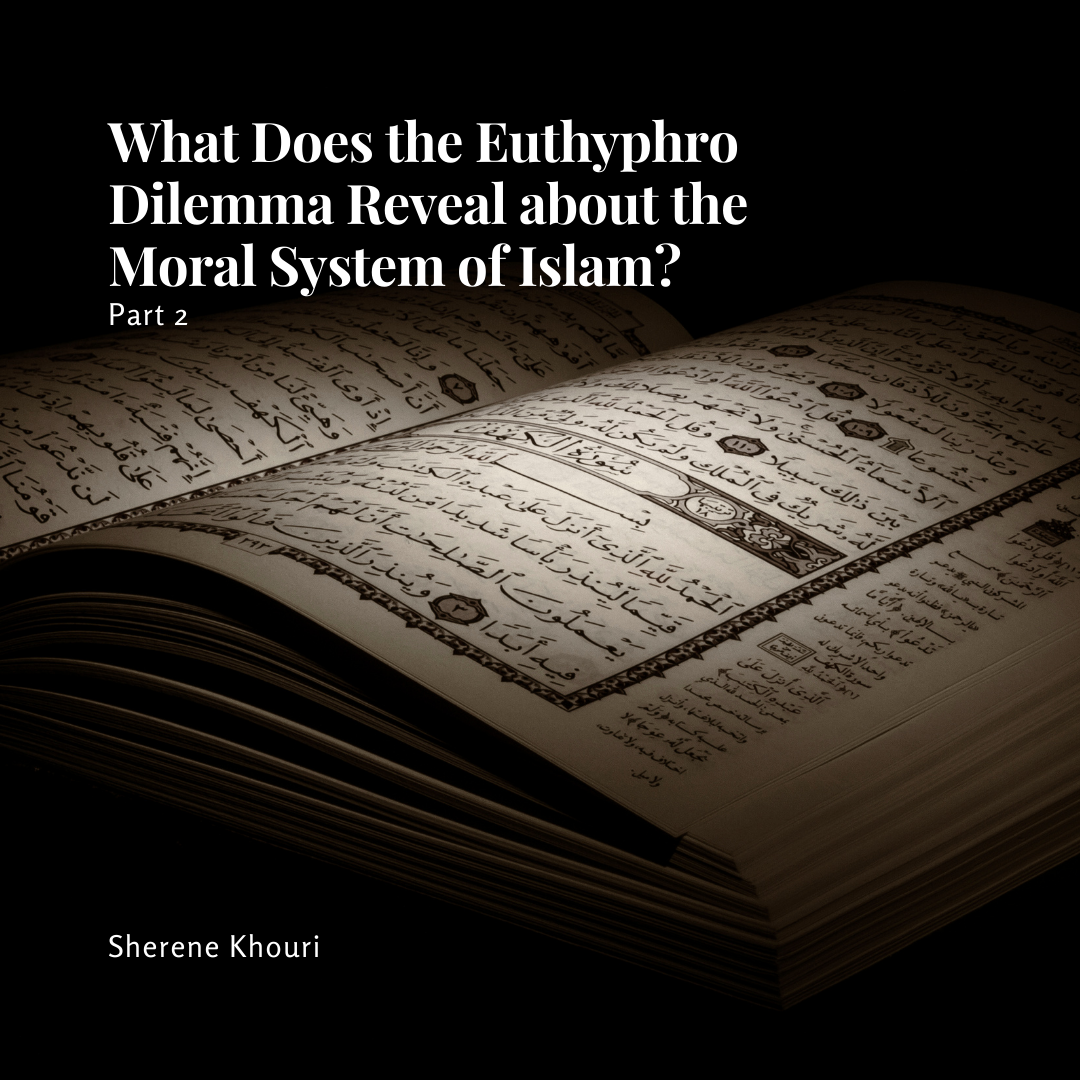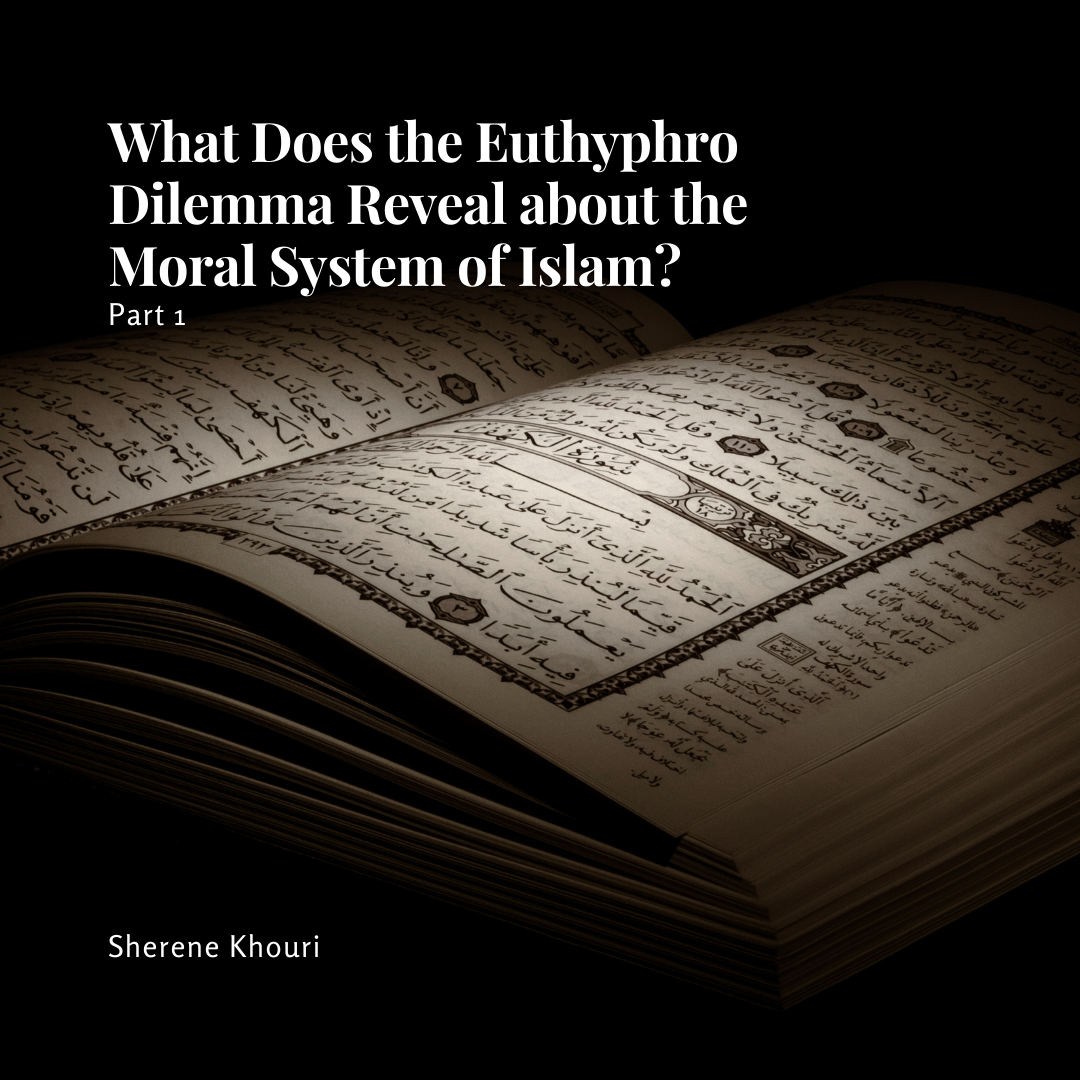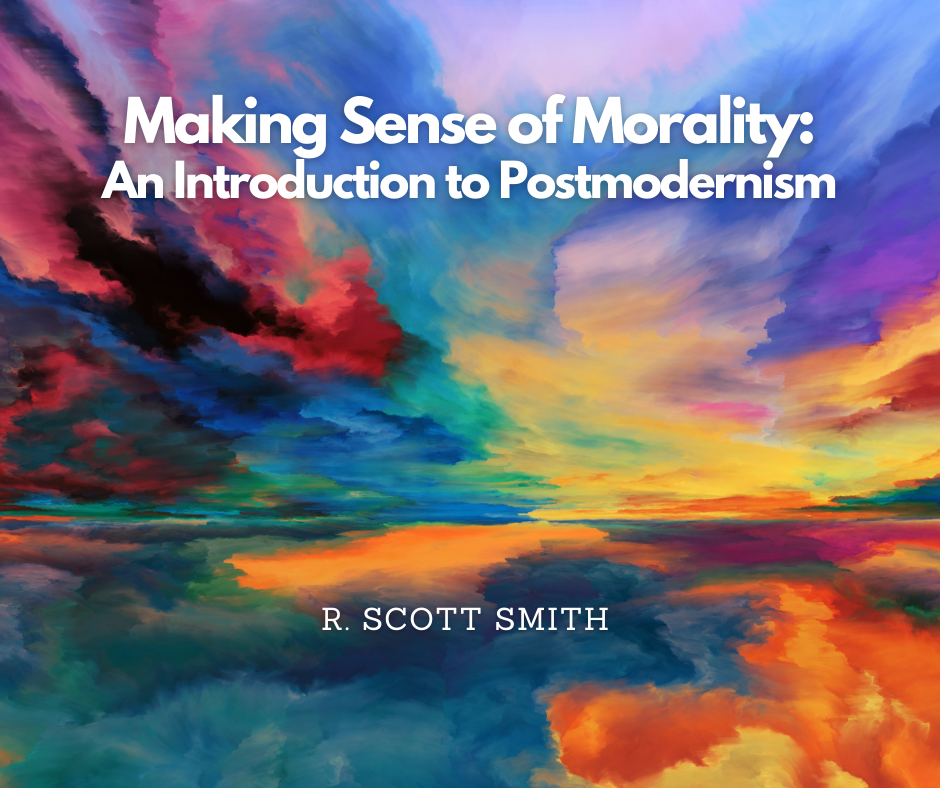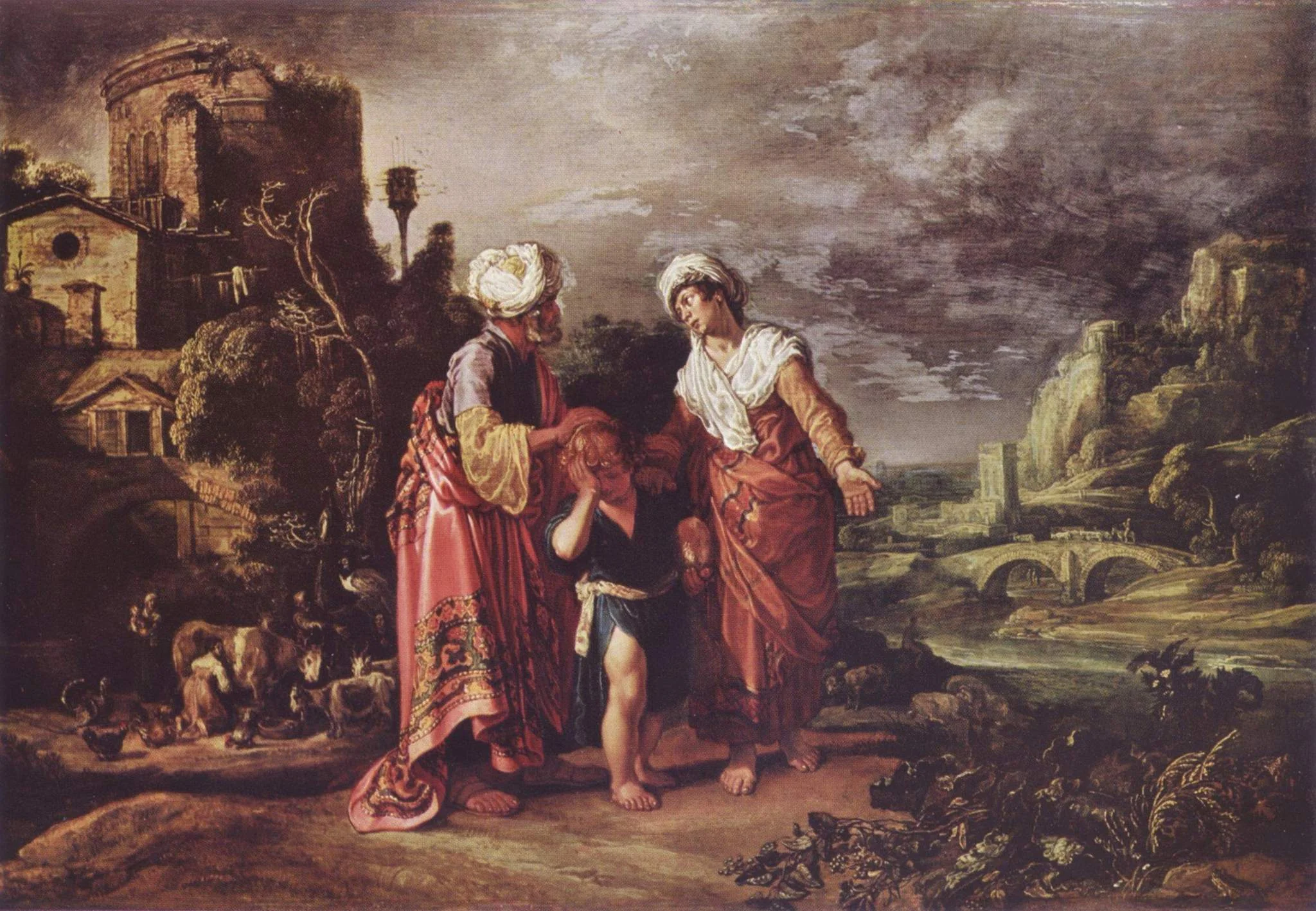Both Christians and Muslims affirm the following argument:
There are objective moral truths.
God is the best explanation for objective moral truths.
Therefore, God exists.
However, which understanding of God, the Christian’s or the Muslim’s, is a better explanation for objective morality? In this paper I argue that Christianity’s trinitarian God is a better explanation for objective morality than Islam’s God. As part of this argument, I propose a Trinitarian Metaethical Theory (TMT) which maintains that the ultimate ground of morality is God’s trinitarian nature.
Within Christian theology, it’s important to include the dynamic, loving, inner-trinitarian relationships in our understanding of metaethics. To leave out these relationships, by saying morality is merely based on God’s nature, ignores important aspects of God which help explain how He is the foundation of morality. Including these relationships provides a more complete picture of how God is the source of morality. Thus, my TMT focuses on God’s triunity and shows how loving relationships exist at the deepest level of ultimate reality.
Many others have recognized the importance of adding God’s inner-trinitarian relationships to our metaphysical categories of substance and essence. Thomas McCall argued that God’s inner-trinitarian relationships are essential to the very being of God. He wrote “… I am convinced that divine love is essential to God … that holy love is of the essence of God. But I think this is accounted for and grounded in the Trinity.”1 He continued by affirming the following statement by John Zizioulas: “Love is not an emanation or ‘property’ of the substance of God … but is constitutive of his substance, i.e., it is that which makes God what He is…. Thus love ceases to be a qualifying—i.e. secondary—property of being and becomes the supreme ontological predicate.”2 Thomas Torrance also proposed elevating the metaphysical importance of the divine relationships. He wrote that the trinitarian persons “… who indwell one another in the Love that God is constitutes the Communion of Love or the movement of reciprocal Loving which is identical with the One Being of God.”3 Eleonore Stump insisted that “… since, on the doctrine of the Trinity, the persons of the Trinity are not reducible to something else in the Godhead, then, persons are an irreducible part of the ultimate foundation of reality….”4
According to W. Norris Clarke, Josef Ratzinger, before he became Pope Benedict XVI, dared to reproach “St. Thomas himself … and call[ed] for a new, explicitly relational conception of the very nature of the person as such, wherein relationality would become an equally primordial aspect of the person as substantiality.”5 Ratzinger claimed that within trinitarian theology “… lies concealed a revolution in man’s view of the world: the undivided sway of thinking in terms of substance is ended; relation is discovered as an equally valid primordial mode of reality….”6 Clarke himself wrote,
To be a person is to be with …, to be a sharer, a receiver, a lover. Ultimately the reason why all this is so is that this is the very nature of the Supreme Being, the Source of all being, as revealed to us in the Christian doctrine of God as three Persons within the unity of one being, so that the very being of God is to be self-communicative love. This dynamism is then echoed in all of us, his creatures, and in a preeminent way in created persons. Thus the Christian revelation of the Trinity is not some abstruse doctrine for theologians alone but has a unique illuminating power as to the meaning of being itself which carries metaphysical vision beyond what was accessible to it unaided.7
Alan Torrance suggested we should “conceive of the intra-divine communion of the Trinity as the ground of all that is.”8 William Hasker affirmed that “the doctrine of the Trinity is an integral part of the metaphysically necessary ultimate structure of reality.”9 Millard Erickson described the love between the divine persons as “the attractive force of unselfish concern for another person” and thus the “most powerful binding force in the universe.”10 This is more than mere sentiment; if God is the ultimate reality, and He exists as three persons in loving relationships with each other, then love is the basic fabric of reality. Clarke said it well when he wrote,
The highest instance of being is a unity that is not solitary, like Plotinus’s One, but Communion. Here we see in the most striking way how a specifically Christian philosophy can fruitfully shed light on a philosophical problem itself, by drawing on Revelation. The light from Revelation … operates as opening up for reflection a new possibility in the nature and meaning of being that we might never have thought of ourselves from our limited human experience, but which, once opened up, is so illuminating that it now shines on its own as an insight into the nature of being and persons that makes many things suddenly fall into place whose depths we could not fathom before…. [I]n recent years I have come to realize that the doctrine of the Trinity is a uniquely powerful source of illumination in both the philosophy of being and … of the person.11
To develop my TMT, I begin with Robert Adams’s model and expand it by incorporating God’s triunity. In the first part of his model, his theory of moral value, Adams argued that God is the ultimate good and other beings are good when they resemble Him. In his model the “… part played by God … is similar to that of the Form of … the Good in Plato’s … Republic. God is the supreme Good, and the goodness of other things consists in a sort of resemblance to God.”12 Thus humans are good when they resemble God in a morally pertinent sense. My TMT extends this theory by proposing that the specific thing being resembled is God’s triunity as found in, and expressed among, the loving relationships between the divine persons. Humans are good when they resemble the love between the trinitarian members. Millard Erickson argued that, since the relationships between the divine persons are
… bound by agape, self-sacrificial, giving love … the type of relationship that should characterize human persons, particularly believing Christians who have accepted the structure of intratrinitarian relationships as the pattern for their own relationships, … would be one of unselfish love and submission to the other, seeking the welfare of the other over one’s own.13
In this sense God’s inner-trinitarian relationships provide the ultimate foundation for moral value.
Next, I’ll provide two reasons this trinitarian understanding of God is a better explanation for objective moral value than Islam’s God. First, without the inner-trinitarian relationships, it’s unclear that love, the cornerstone of morality, is a necessary aspect of ultimate reality. Because morality is inextricably tied to personal relationships, it’s more plausible to conceive of love and morality in the context of multiple divine persons than in a context of a single person existing in eternal isolation. Richard Swinburne proclaimed there’s “something profoundly imperfect and therefore inadequately divine in a solitary divine individual.”14 It’s difficult to even fathom love, kindness, respect, etc. where there’s only one divine person. Erickson wrote that,
Love exists within the Godhead as a binding relationship of each of the persons to each of the others…. [T]he attribute of love is more than just another attribute. The statement ‘God is love’ in 1 John is a very basic characterization of God, which … is more than merely, ‘God is loving’…. In a sense, God being love virtually requires that he be more than one person. Love, to be love, must have both a subject and an object. Thus, if there were not multiplicity in the persons of the Godhead, God could not really be love prior to the creation….15
God didn’t need to create other persons in order to be loving, moral, and relational because, being three persons in fellowship, He’s always been these things. Hasker explained that “… wholly apart from creation, love and relationship abound within God, in the eternal loving mutuality of the persons of the Trinity….”16
If love isn’t a necessary aspect of God, then it’s difficult to see how God could be the foundation of moral value. However, with God’s triunity, it’s more clearly the case that love is part of ultimate reality. If loving relationships are a primordial aspect of God, we can more confidently affirm that love is necessarily good. Consider the following syllogism:
God is the good.
God is necessarily a communion of three divine persons in loving relationships with each other.
Whatever God necessarily is, is part of what constitutes the goodness of God.
Therefore, loving relationships, thus love in general, is necessarily good.
According to premise two, love and relationality aren’t contingent properties of God that only began when He created other beings to love but are part of His essential attributes. McCall explained that,
If the loving relationships … among the divine persons are essential to God, the triune God just is essentially loving…. If God is Trinity, then God’s own internal life consists in the loving communion shared between … the three divine persons, and God is not contingently relational at all but is necessarily so…. [T]he love and relationality of God toward the creation are merely contingent…. But wholly apart from creation, love and relationship abound within God, in the eternal loving mutuality of the persons of the Trinity….17
If these inner-trinitarian relationships were not an essential aspect of God, if love didn’t exist until creation, then love would be contingent. In such a scenario, love, the cornerstone of morality, would be arbitrary because God could’ve created differently such that there was no love. Something that could be otherwise doesn’t seem metaphysically “sturdy” enough to be the foundation of moral value. However, if God is triune, love isn’t something new and contingent that came about in creation but is eternally necessary. In this way God’s inner-trinitarian relationships allow us to affirm that love, the bedrock of morality, is necessarily good.
Second, Christianity’s trinitarian God, as opposed to Islam’s, makes more sense of what we know from human experience, that loving relationships are the most important part of our lives. If God existed before creation as a loving fellowship of persons, it may seem puzzling why He created other persons. Though He didn’t have to, He chose to create human beings in His image to expand this loving fellowship. McCall argued that there’s “… no obvious incoherence in maintaining that the triune God who enjoys perfection in the intra-trinitarian life may desire to share that life while not needing to do so to reach fulfillment or perfection.”18 William Lane Craig explained that existing “… alone in the self-sufficiency of His own being, enjoying the timeless fullness of the intra-trinitarian love relationships, God had no need for the creation of finite persons…. He did this, not out of any deficit in Himself …, but in order that finite temporal creatures might come to share in the joy and blessedness of the inner life of God.”19
Understanding this purpose God had for creating humans helps explain why the meaning of our lives is inextricably interwoven with our loving relationships. As Clarke put it, “[t]o be an actualized human person, then, is to be a lover, to live a life of inter-personal self-giving and receiving.”20 He argued that “… no one can reach mature development as a person without the experience of opening oneself, giving oneself to another in self-forgetting love …. To be a true self, one must somehow go out of oneself, forget oneself. This apparent paradox is an ancient one and has been noted over and over in the various attempts to work out philosophies of love and friendship down the ages.”21 While describing the relationships within the Trinity, Clarke explained,
[T]he dynamism of self-communication is part of the very nature of being and so of the person. But the metaphysician would like to probe further … into why all this should be the case. I think we now have the answer: the reason why all being, and all persons preeminently, are such is precisely because that is the way the Supreme Being, the Source of all being, actually is, and, since all creatures—and in a special way persons—are participants and hence images of their divine Source, then it follows that all created beings, and more intensely persons, will mirror in some characteristic way the divine mode of being.22
Our lives are a reflection of the inner-trinitarian life of God. We were created to image Him by loving others.
Not only our lives but the entire universe, being infused with meaning through God’s intentions for it, is purposefully heading towards the culmination of meaningful love. Clarke summed it up well:
[S]ince all finite goods are good only by participation in the Infinite Good, every finite being tends, as far as its nature allows, towards imitating, becoming a likeness of, the Divine Goodness. In personal beings, endowed with intelligence and will, this universal dynamism towards the Good turns into an innate implicit longing for personal union with the Infinite Good, ‘the natural desire for the Beatific Vision,’ as Aquinas puts it. The whole universe …. turns into an immense implicit aspiration towards the Divine.23
Understanding God’s triunity helps explain the very meaning of life and existence.
In the second part of Adams’s model, his theory of moral obligation, he argued that our obligations are generated by God’s commands. An important part of his theory is that obligations arise from social relationships, a proposal affirmed by many ethicists. He then argued that a “… divine command theory of the nature of moral obligation can be seen as an idealized version of [this because our] relationship with God is in a broad sense … a social relationship.”24 My TMT extends this idea by bringing in God’s triunity. Below, I provide two reasons Christianity’s trinitarian God is a better explanation for moral obligation than Islam’s God.
First, since Christianity’s trinitarian God provides a social context for reality, it’s a more plausible explanation of how and why obligation arises from social relationships. If God exists as divine persons in relationships, then there’s a sense in which ultimate reality is social and thus all reality takes place in a social context. Erickson argued that if the creator consists of three persons in loving relationships, then “… the fundamental characteristic of the universe is personal … [and] reality is primarily social.”25 Social relationships aren’t something new that came about when God created other beings; they are a necessary aspect of ultimate reality. Because social relationships are a primordial part of reality, they enjoy the gravitas of a metaphysical necessity as opposed to merely a contingent reality that only came about when God created others.
If social relationships are part of ultimate reality, we shouldn’t be surprised that personal relationships play such a large role in the metaethics of obligation. The obligations that arise in our social relationship with God are but an image of, and flow out of, the social relationships within God. It makes sense that creation would reflect important necessary aspects of the Creator. Hasker noted how God’s trinitarian nature reinforces the importance of social relationships: “For those who find personal relationships to be central to what transpires between God and … human[s], … the Trinity provides a powerful reinforcement by finding such social relationships in the very being of God.”26
If obligation is inherently social, God’s triunity provides a fitting explanation for why there’s a social context to reality in which moral obligation can arise. God’s trinitarian nature provides the social context for reality in general, and then His creation of other persons was merely an extension of that original social context. When He created us, it was a natural carryover from the ultimate reality of divine persons that we, created in His image, would be accountable to Him via a social relationship. Christianity’s trinitarian God provides a better explanation for the social context of moral obligation than Islam’s God. An essentially societal source of morality (God as Trinity) fits the social aspect of our experience of morality better than Islam’s God.
Second, Christianity’s trinitarian God, as opposed to Islam’s, is a better explanation for why God’s commands, which generate our obligations, focus on loving others, which is affirmed by both Christians and Muslims. Along with Duns Scotus, my TMT affirms that God’s commands for us are instructions for the path which best achieves our ultimate purpose—becoming co-lovers with the members of Trinity.27 While it’s true that God has authority over us, His commands flow not from a despotic desire to control but from a desire that we’d enjoy the greatest thing possible—a loving relationship with Him. John Hare, who champions Scotus’s idea that God’s commands direct us towards our telos of joining the loving communion of the Trinity, explained that in the
… Christian scriptures, the central notion is that of God commanding us…. [T]he notion of obligation makes most sense against the background of command … [however] the Judeo-Christian account adds God’s love to the notion of God’s commands, so that the commands are embedded in a covenant by which God blesses us and we are given a route towards our highest good, which is union with God.28
As Clarke described beautifully: “To be a person is to be a dynamic act of existence on the move, towards self-conscious, free sharing and receiving, becoming a lover, and finally a lover totally centered on Infinite being and Goodness itself, the final goal of our journey as embodied spirits towards being-as-communion—the very nature of the Source of all being, and hence of all beings created in its image.”29
God’s triunity fits well with the idea that the greatest commandments are to love God and to love others and that all the other commandments rest on this foundation (Deut. 6:4-5, Lev. 19:17-18, Matt. 22:36–40). These are the greatest commandments because they instruct us to resemble God, i.e., the trinitarian members who both love God (the other divine persons) and love others (the other divine persons). Love, the basis of morality, originates from within God’s inner life of three divine persons in perfect, loving fellowship.

































